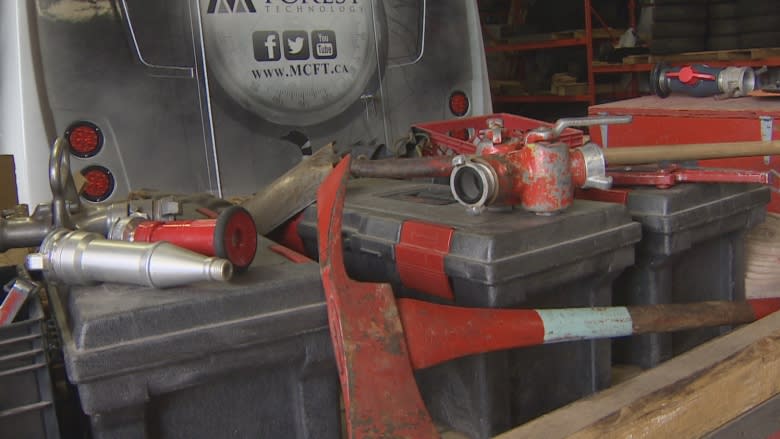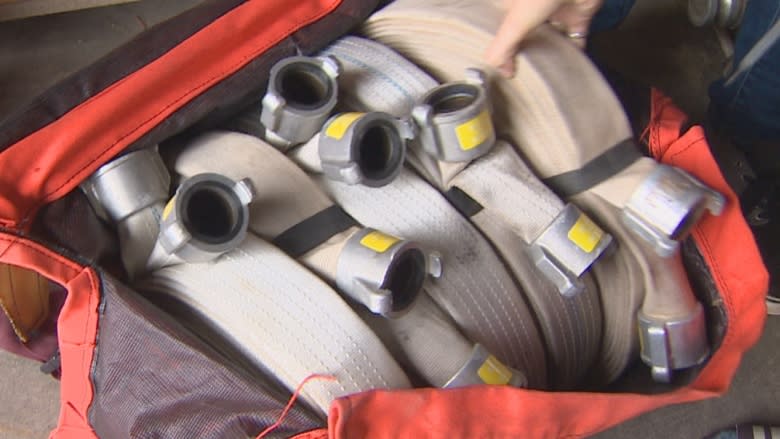Intense wildfire season gives forestry students up-close experience
Firefighters from New Brunswick are among those from across Canada who have been called to help fight forest fires in British Columbia.
Twenty-eight people from New Brunswick are on the West Coast working to douse the 545 B.C. wildfires while the wildfire risk remains high.
Two strike team leaders were sent to B.C. over the weekend and will be based in Merritt.
Twenty firefighters are working on the Wild Goose Lake fire, north of Clinton.
Four division supervisors are working on the Shovel Lake fire.
The Department of Agriculture, Aquaculture and Fisheries has also sent staff to help as an agency representative and another with the Canadian Interagency Forest Fire Centre, both based in Kamloops.
Forestry students on the job
While they were not among those who were sent to B.C. to help fight the wildfires, three students of Maritime College of Forest Technology in Fredericton say they have gained a lot of experience over the summer working as firefighters this summer in Alberta and Quebec.
Joel Tremblay and Nichole Selk both say any experience they receive as students helps. A third student, Wesley Currie, is still on the job fighting fires in northern Alberta.
Selk said she regretted she had to decline an offer to go to B.C. because she was returning to school.
"There's something about helping other communities and helping people that's really satisfying," Selk said of the work they do.
The students, whose forestry studies include forest-fire management, described the job as hard but satisfying.
"You're lugging in lots of gear and it's heavy and you have to go through mud and brush," Selk said.
Tremblay said a firefighter carries hose packs, pumps and back tanks that would weigh about 120 pounds.
"Those things get heavy after 16-hour days for a couple of weeks straight," Tremblay said of the back tanks.
Proud of work
Each of the fires they worked on was different, they said, but the students were proud of the work they did to ensure hot spots were out so fires wouldn't flare up again.
Currie, who is working as a wildland firefighter with the Alberta government, said he's worked lots of different roles fighting the fires this summer, including being on the initial attack of fighting a fire.
"We could be on a suppression, trying to put out any hot spots, we could be doing final mop-up stages," he said of the work he does on his 15 to 18 day shifts.
Currie said the conditions are rough, with firefighters kicking up dust and ash and getting covered in bugs while working long days, with their noses and mouths covered in handkerchiefs to help with breathing the smoke-filled air.
Despite the conditions, Currie hopes he gets called to work the wildfires in B.C.
"We won't know until tomorrow."




